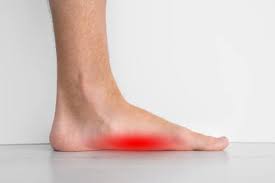Foot health is key for maintaining mobility and overall quality of life. Many individuals suffer from chronic foot conditions such as bunions, heel pain, ingrown toenails, and sports injuries, which can significantly impact their daily activities. Podiatrists, as specialized medical professionals, play a key role in diagnosing, managing, and treating these conditions. Let’s look at the ways podiatrists help patients manage chronic foot conditions, their methods, and treatments.
What Is the Role of a Podiatrist in Foot Care?
A podiatrist specializes in the medical care and treatment of the feet and ankles. Their role encompasses a variety of services aimed at promoting foot health. These practitioners are trained to diagnose and treat a wide range of conditions, from minor issues like calluses and corns to more complex chronic conditions. They guide patients toward maintaining proper foot function and addressing discomfort or injuries that hinder mobility.
Podiatrists combine their expertise with advanced diagnostic tools, therapeutic interventions, and preventive education to deliver comprehensive care.
How Do Podiatrists Manage Chronic Foot Conditions?
Podiatrists use a combination of diagnostic tools, treatments, therapies, and educational approaches to manage chronic foot conditions.
- Diagnosing and Treating Foot Conditions
They conduct thorough evaluations to identify the root causes of foot pain or deformities. This involves physical examinations, imaging studies, and biomechanical assessments. Based on the diagnosis, treatment may include medication, in-office procedures, or referrals for surgical intervention when required.
- Providing Custom Orthotics
For structural issues or chronic pain, custom orthotics serve as a key solution. These devices are tailored to the patient’s specific needs, providing arch support, redistributing pressure, and correcting alignment issues.
- Prescribing Physical Therapy
Podiatrists often prescribe physical therapy to support recovery and improve mobility. Exercises targeting the foot help strengthen muscles, reduce inflammation, and restore normal movement. Therapy is frequently used in conjunction with other treatments to address injuries and chronic conditions.
- Providing Routine Foot Care
Routine care helps prevent complications arising from chronic conditions or underlying health issues like diabetes. Services may include toenail trimming, corn removal, and wound care for ulcers. These practices reduce the risk of infection and maintain overall foot health.
- Educating Patients on Proper Foot Care
Podiatrists explain preventive measures such as proper hygiene, footwear selection, and at-home stretches or exercises. Patients gain knowledge on recognizing early signs of worsening conditions, enabling them to seek timely care.
What Are the Common Conditions Podiatrists Treat?
Podiatrists address a broad range of foot-related conditions, focusing on both acute and chronic issues. Below are some of the most frequent conditions they manage effectively.
Bunions
Bunions are painful bony bumps that form at the base of the big toe. Podiatrists offer non-surgical treatments such as orthotics, padding, and anti-inflammatory medications to alleviate symptoms. For severe cases, surgical correction may be recommended.
Heel Pain
Often caused by plantar fasciitis or heel spurs, heel pain can make walking difficult. Podiatrists diagnose the underlying cause and suggest treatments like stretching exercises, orthotics, and injections to reduce pain and inflammation.
Ingrown Toenails
Ingrown toenails involve the nail growing into the surrounding skin, causing pain and, in some cases, infection. Podiatrists perform minor in-office procedures to remove the affected nail and prevent recurrence.
Sports Injuries
From sprains to stress fractures, sports injuries are common among athletes. Podiatrists assess the injury’s severity and create comprehensive treatment plans that may include rest, immobilization, physical therapy, and gradual rehabilitation to return patients to their activities safely.
Need To See a Podiatrist?
Chronic foot conditions don’t have to disrupt your daily life. Podiatrists offer tailored care to manage and treat these issues effectively. Whether it’s bunions, heel pain, ingrown toenails, or sports-related injuries, seeking professional care is a helpful first step toward better foot health. Schedule a visit with a podiatrist to learn more about available treatment options.

